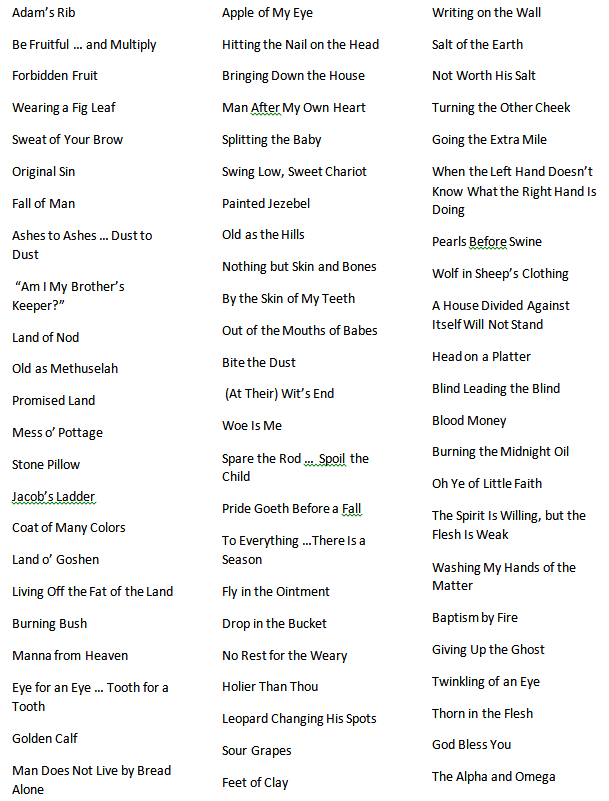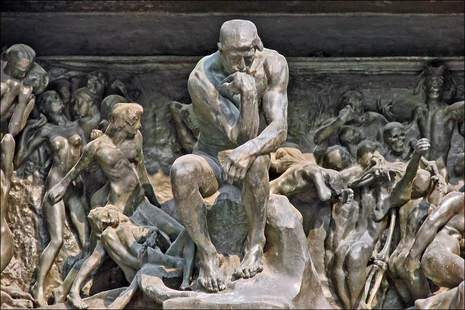I have written before of the singular significance folks here in the Southeastern Conference place on college football. Former Arkansas Governor Mike Huckabee once described college football in the SEC as something more akin to religion than mere sport! If that is so, then magnify that tenfold and you pretty much understand the feeling that the good folks in Knoxville have about their beloved Volunteers!
It would be quite natural, therefore, during this week before the opening game of the season, for me as a local pastor to have football on my mind. (Or should I say that it might be unnatural for me not to be thinking about football in east Tennessee right now?!)
Football is a team sport. It requires at least twenty-two players on the field for one hour of timed play. Half of these will play offense and half of these will play defense. But in reality, it requires several more players, for there are special teams players who are employed for special teams play, such as those involving kicking and returns – including kickoffs, extra points, punting, and returns of any such kicks.
Of course, offensive, defensive, and special teams units all have assigned positions. As a general rule, especially on offense but also on defense and special teams, these are divided into position players and skill positions. Those who are rightly suited by their large size are usually placed on the line as linemen.
Although usually smaller, those who are strong and swift are usually behind the line. And those with particular skills are designated for the skill positions, meaning primarily those who are likely to contact with the ball itself.
Thus a typical offense may consist of the largest and strongest (albeit slowest) men on the line blocking, the smaller but swifter and tougher men behind the line as running backs advancing the ball on the ground, and the thinnest but fastest men playing receivers and catching the ball. Of course, the one running the offense on the field is most likely the quarterback, who has not only ball-handling skills, but a particular knowledge of and interaction with the skills of all the other players.
Over on the defensive side, there is normally a similar setup based on size, strength, and skillset. The largest men play on the line; the medium sized men back the line; and the smallest but swiftest men play in the backfield.
Such is similarly the case with special teams (for kickoffs, extra points, punts, and returns), wherein the biggest difference is that the ball-handling quarterback has usually been supplanted by one who has the unique skill of kicking or else of returning the ball that has been kicked.
Added to this array of players positioned on the field are the myriad of back-up players for each position. And then, of course, there are the various squads of coaches (offensive, defensive, and special teams) who are particularly adept at honing the skills of each player at each position. Many of these are former players themselves.
Plus a football team normally consists of trainers, ball handlers, statisticians, and any number of other support personnel whose purpose is to help support the actual players on the field and to improve their given performance and results.
At this point, many who are reading this are likely saying, “Okay, okay, we get it. But what is your point?” And my answer is that, in the sense I have described the various positions above, a football squad is a good analogy for understanding how the church works.
A church is actually a team of Christians who have bonded together to advance the cause of the kingdom of Jesus Christ. And those believers who comprise this team are all unique in their God-given skillset. Some are equipped by God for certain purposes and others are equipped by God for certain other purposes.
To be sure, none of us have the exact same skillset or combination of skills. But God in His wisdom has uniquely fitted each of us to fill some role and play some part in the church and her mission. And we are all far more productive and far more rewarded when we are fulfilling the purpose for which we were suited by God. Conversely, we are all far less productive and far less rewarded when we attempt to fulfill that role or roles for which we have not been suited by God.
Biblically, the skillset I refer to here is what is known as spiritual gifts. The Bible addresses these gifts in several passages, including chapter 12 of the New Testament Letter to the Romans, chapter 12 of the First New Testament Letter to the Corinthians, and chapter 4 of the New Testament Letter to the Ephesians.
At least eighteen gifts are delineated in these combined passages, although some interpreters see as few as nine and some as many as thirty-two. My personal conviction is that every single believer has at least one spiritual gift. And many believers have some combination of more than one.
In summary, I might add that football was aptly described by Hall-of-Famer “Bud” Wilkinson as twenty-two men running up and down a field desperately in need of rest being watched by twenty-two thousand people in the stands desperately in need of exercise.
In light to of this, if you are a believer, I trust you have looked into and discovered your own spiritual gift or gifts. I trust as well that you have found a way to get out of the stands and onto the field and employ the particular gift or gift-set that God has given you in a local church setting.
For only then can the church of Jesus Christ function in the way that she was intended by God to function. And only then will she, as well as each of us who comprise her, truly advance the cause of Christ and experience the victories and joy that God has in store for us as a result!
SCRIPTURE SOURCES:
https://biblehub.com/niv/romans/12.htm;
https://biblehub.com/niv/1_corinthians/1.htm;
https://biblehub.com/niv/ephesians/4.htm.
SEE ALSO:
https://www.churchgrowth.org/.
QUOTE SOURCE:
https://www.barrypopik.com/index.php/new_york_city/entry/football_is_22_people_on_the_field.



